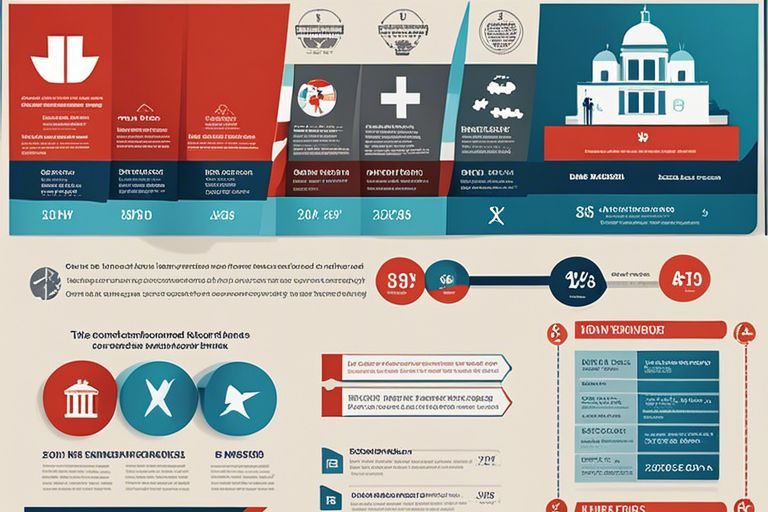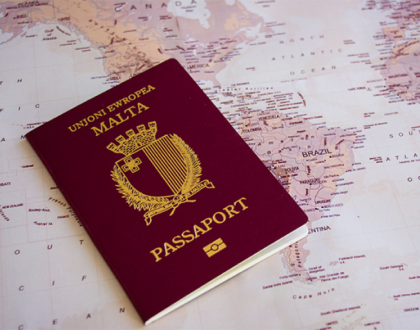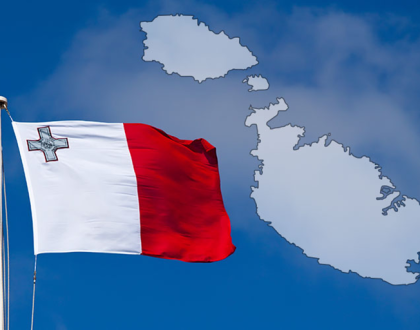Impact of Malta’s Economic Policies on Business

Over the years, Malta's economic policies have played a crucial role in shaping the business landscape in the country. This informative blog post probes into how these policies have a direct impact on various business operations within Malta. By understanding the nuances of Malta's economic framework, businesses can make informed decisions to navigate the local market successfully.
Overview of Malta's Economic Landscape
Historical Economic Background
For centuries, Malta has been a strategically located hub for trade in the Mediterranean. Its economy has evolved from agrarian to industrial and is now dominated by services. The country's accession to the European Union in 2004 has further shaped its economic policies towards a more open market.
Key Economic Sectors
The key economic sectors in Malta include tourism, financial services, manufacturing, and information technology. These sectors have seen significant growth due to government incentives, a skilled workforce, and strategic geographical positioning. Malta's stable political climate and membership in the EU have attracted foreign investment, driving economic development.
Analysis of Recent Economic Policies
Taxation Policies and Their Influence on Businesses
While Malta has attracted businesses with its favorable tax policies, recent changes have caused some concerns. The revised tax system has increased compliance requirements, impacting operational costs for businesses.
Investment Stimulus and Incentives
On the investment front, Malta has introduced various stimulus packages and incentives to attract foreign investments. These policies include tax breaks, grants, and subsidies to promote economic growth.
This has resulted in an influx of Foreign Direct Investment (FDI) in key sectors such as technology, finance, and manufacturing, boosting job creation and enhancing the country's competitiveness on a global scale.
Labor Market Regulations and Effects on Workforce
For businesses operating in Malta, labor market regulations play a crucial role in shaping their workforce management strategies. Recent policies focusing on employee rights, working conditions, and minimum wage have impacted businesses, especially in labor-intensive industries.
Effects such as increased labor costs and tighter regulations have forced businesses to reassess their operational models and invest more in automation and upskilling programs to remain competitive in the market.
Impact of Economic Policies on Various Business Sectors
Impact on Small and Medium Enterprises (SMEs)
Not all economic policies are beneficial for small and medium enterprises (SMEs). While some policies may provide incentives and support, others such as increased taxation or stringent regulations can hinder the growth and operations of SMEs.
Influence on Foreign Direct Investment and Multinational Companies
An important aspect of economic policies is their influence on foreign direct investment (FDI) and multinational companies. Economic policies that promote a stable and conducive business environment attract FDI and multinational companies to invest in the region, boosting the economy and creating job opportunities.
Policies that focus on reducing bureaucracy, providing tax advantages, and ensuring political stability play a critical role in attracting foreign investment and multinational corporations. These policies can enhance competitiveness, drive innovation, and contribute to economic growth.
Challenges and Opportunities
Current Economic Challenges Facing Businesses
Many businesses in Malta are currently facing challenges due to factors such as rising operational costs, increasing competition, and uncertainties in global markets.
Potential Growth Opportunities and Future Prospects
For businesses in Malta, there are several growth opportunities on the horizon, including access to the European Union market, strategic location for trade, and government support for innovation and entrepreneurship.
The proactive approach of the Maltese government in attracting foreign direct investment and promoting sectors like financial services, technology, and tourism, presents a promising future for businesses looking to expand and thrive in Malta's economy.
Final Words
With this in mind, it is clear that Malta's economic policies play a significant role in shaping the business landscape. By maintaining a business-friendly environment, attracting foreign investment, and investing in key sectors, Malta has been able to foster a conducive environment for businesses to thrive. However, challenges such as infrastructure development and skill shortages may need to be addressed to sustain long-term growth and attract further investment to the country.
FAQs
What are the key economic sectors in Malta?
Malta's key economic sectors include tourism, financial services, manufacturing, and information technology. These sectors have experienced significant growth due to government incentives, a skilled workforce, and Malta's strategic location.
How have recent tax policy changes impacted businesses in Malta?
Recent changes to Malta's tax policies have increased compliance requirements, which have impacted operational costs for businesses. These revisions aim to ensure fair tax practices but have also led to higher administrative burdens.
What incentives does Malta offer to attract foreign investment?
Malta provides various incentives to attract foreign investment, including tax breaks, grants, and subsidies. These measures are designed to boost economic growth, particularly in sectors like technology, finance, and manufacturing.
How do labor market regulations affect businesses in Malta?
Labor market regulations in Malta, such as those focusing on employee rights, working conditions, and minimum wage, have increased labor costs and introduced tighter compliance requirements. This has led businesses to invest more in automation and upskilling to remain competitive.
What future growth opportunities exist for businesses in Malta?
Businesses in Malta can look forward to growth opportunities through access to the European Union market, Malta's strategic trade location, and government support for innovation and entrepreneurship. The government's proactive stance on attracting foreign investment also presents promising prospects.
Recommended Posts

Legal Win for Malta’s Citizenship Program
October 4, 2024

Why iGaming Brands Choose Malta
October 4, 2024

Malta Ranks Fifth Among European Islands
October 4, 2024



